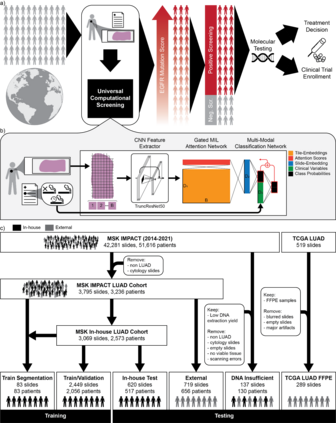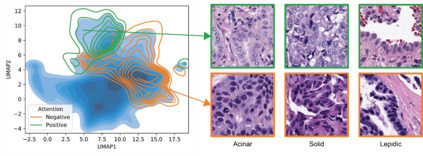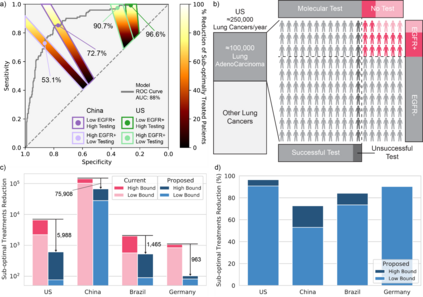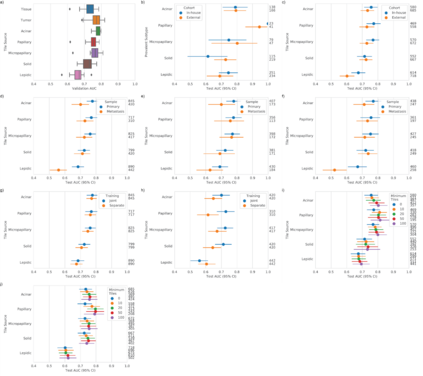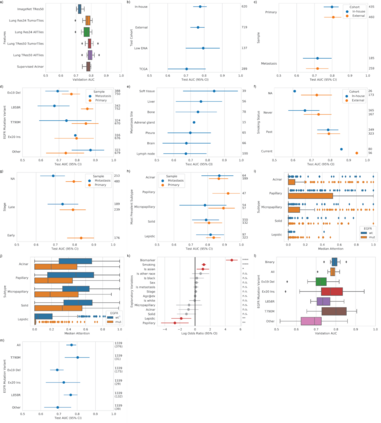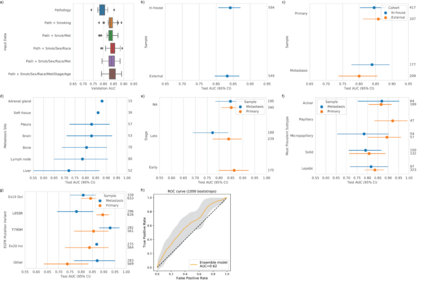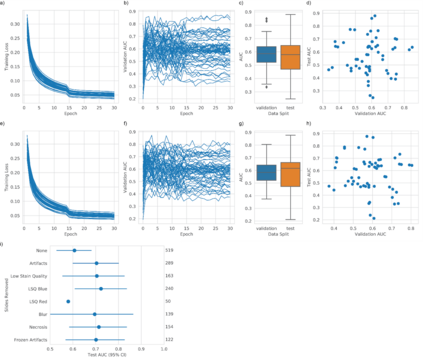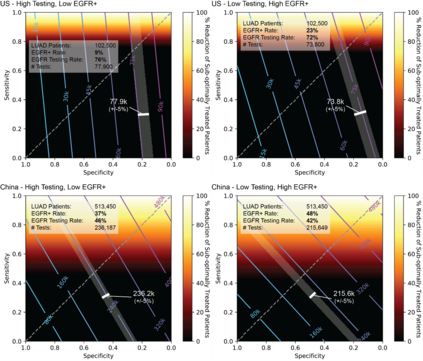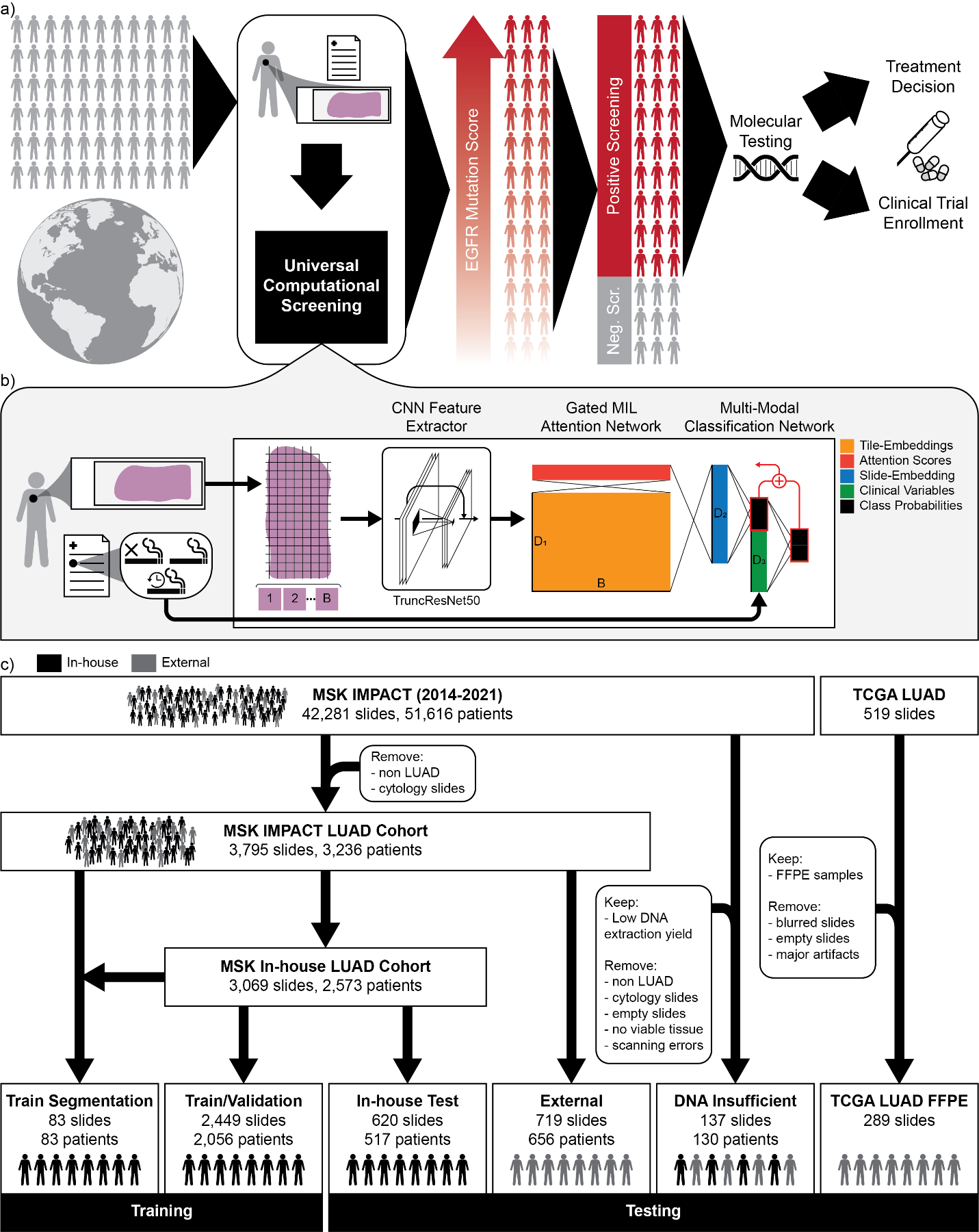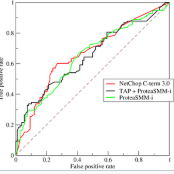Lung cancer is the leading cause of cancer death worldwide, with lung adenocarcinoma being the most prevalent form of lung cancer. EGFR positive lung adenocarcinomas have been shown to have high response rates to TKI therapy, underlying the essential nature of molecular testing for lung cancers. Despite current guidelines consider testing necessary, a large portion of patients are not routinely profiled, resulting in millions of people not receiving the optimal treatment for their lung cancer. Sequencing is the gold standard for molecular testing of EGFR mutations, but it can take several weeks for results to come back, which is not ideal in a time constrained scenario. The development of alternative screening tools capable of detecting EGFR mutations quickly and cheaply while preserving tissue for sequencing could help reduce the amount of sub-optimally treated patients. We propose a multi-modal approach which integrates pathology images and clinical variables to predict EGFR mutational status achieving an AUC of 84% on the largest clinical cohort to date. Such a computational model could be deployed at large at little additional cost. Its clinical application could reduce the number of patients who receive sub-optimal treatments by 53.1% in China, and up to 96.6% in the US.
翻译:肺癌是全世界癌症死亡的主要原因,肺癌是肺癌的最常见形式,肺癌是肺癌的最常见形式。EGFR 肺癌阳性肺癌表明,对TKI疗法的反应率很高,这是肺癌分子测试基本性质的基础。尽管目前的指导方针认为必须进行检测,但很大一部分病人没有定期接受剖析,导致数百万人没有获得肺癌的最佳治疗。静态是EGFR突变分子测试的金标准,但需要几个星期才能得出结果,这在时间有限的情况下是不理想的。开发能够快速和廉价地检测EGFR突变的替代筛查工具有助于减少组织测序的次优化患者数量。我们提议采用多模式,将病理图象和临床变量结合起来,预测EGFR突变状况,使迄今为止最大的临床组群的AUC达到84%。这种计算模型可以大量部署,但成本不大。其临床应用可以减少在中国接受96.1%次位的病人数量。

